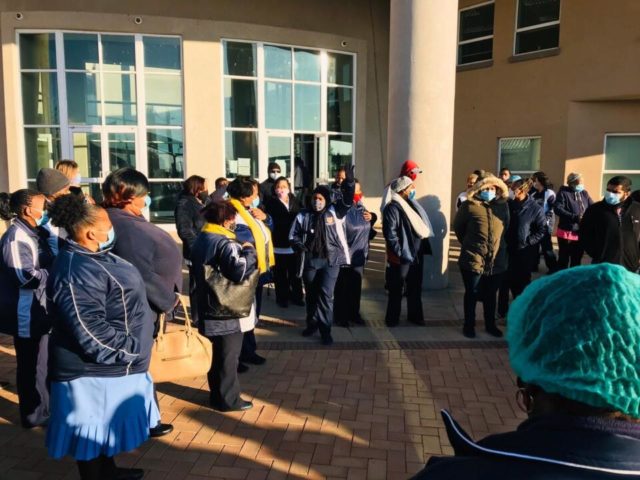Oversight visits by the party to facilities uncovered “a chaotic and ill-informed response by clinics and hospitals in the districts”.
Oversight inspections at health facilities across the Northern Cape last week has revealed a lack of preparedness for the Covid-19 pandemic, according to the Democratic Alliance.
DA Northern Cape Spokesperson for Health, Dr Isak Fritz, said that general findings at provincial facilities uncovered “a chaotic and ill-informed response by clinics and hospitals in the districts”.
“Aside from previously reported mixed-wards, whereby patients who tested positive for coronavirus are made to share wards with general patients, like at De Aar hospital and Connie Vorster Hospital in Hartswater, there is also a dire failure to prepare special Covid-19 wards and to ensure that facilities are equipped to deal with patients presenting with more serious symptoms,” Fritz stated.
He pointed out that some facilities did not even have ventilators, while the staff of other facilities that did have ventilators, had not been ICU trained and did not have health professionals who are able to ventilate patients.
“At the same time, there is no consequence management for health managers who fail to attend Occupational Health and Safety (OHS) training sessions, which would have given them a better ability to conduct risk assessments and implement strategies to ensure improved preparedness at facilities.”
According to Fritz, most hospitals were nothing more than glorified clinics, necessitating referrals to bigger hospitals and placing added strain on the already ailing ambulance service.
“Chronic staff shortages also continue to hamper the provincial Covid-19 response, despite some appointments apparently made by the provincial health department.”
He pointed out that some facilities had to temporarily close due to staff testing positive for coronavirus, leaving the community in the lurch and without access to basic health care because of a failure to implement mitigation strategies to ensure the non-interruption of health care services.
“At other facilities, staff who have tested positive are forced to make an early return to work, sometimes after just six days, despite the possibility that they may still be infected and pass the virus on to colleagues and patients, or that their own health care may be compromised. Other staff, meanwhile, have to work double shifts because of colleagues who fail to report for duty. This places further strain on already overburdened healthcare professionals.”
A shortage of Personal Protective Equipment (PPEs) was, according to Fritz, also a problem at some facilities. “This is in stark contrast to announcements made by provincial government leaders that there are no shortages of PPEs in the Northern Cape. In effect, staff are either re-using PPEs, which is in itself a health risk, or doctors and nurses are purchasing PPEs with their own money. Meanwhile, other facilities have inferior quality PPEs, which also poses a serious safety hazard to staff.”
He pointed out further that some facilities also did not have running water, despite being situated only a short distances from rivers. “Toilets cannot be cleaned and sewerage tanks cannot be purged due to such infrastructure related challenges. Public waiting areas in facilities also cannot be cleaned. At some facilities, doctors and nurses even bring water from home to enable basic hygiene practices, like handwashing, to be observed.”
Fritz stated that, at the same time, the health department seemed to have defaulted on payments to service providers. “This includes non-payment to caterers who provide food to patients. Some have not received payment from the health department for between six to eight months. Whether due to non-payment or poor management, some facilities also do not even have toilet paper and cleaning materials in stock.”
“Also, of concern is the fact that there is very limited control of people crossing over the border at Vioolsdrift, who stay at hotels and guest houses of their choice, with limited screening and monitoring taking place.”
Fritz added that the party would participate in today’s virtual Covid-19 update presented to the legislature’s health portfolio committee. “We intend raising our concerns directly with the health department.”
“Covid-19 cases and deaths in the Northern Cape continue to climb and it has been projected that we will only reach the peak by the end of September. We still do not know how many more patients are going to become infected and get seriously ill with Covid-19.”
The Northern Cape Department of Health did not respond to media attempts to obtain comment.








